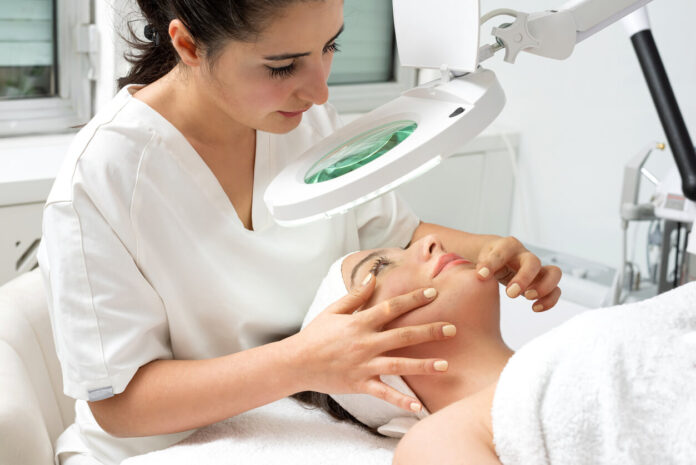When it comes to skin health, seeking help from a dermatologist is the most reliable way to ensure proper diagnosis and professional treatment. Dermatologists are medical specialists who are highly trained in understanding and managing conditions related to the skin, hair, and nails. Whether it’s persistent acne, pigmentation disorders, eczema, or chronic rashes, their approach is comprehensive, personalized, and evidence-based. These skin experts use advanced diagnostic tools and clinical techniques to assess each issue accurately and recommend targeted treatments. Individuals looking for precise, result-oriented solutions for their skin conditions often choose the Best Dermatologist in Dubai for trusted medical expertise and advanced dermatological care.
Understanding the Role of a Dermatologist
A dermatologist is a board-certified medical doctor with specialized training in diagnosing and managing skin diseases. Their expertise spans across hundreds of skin conditions, ranging from common problems like acne to rare autoimmune disorders affecting the skin. Dermatologists not only treat existing skin conditions but also focus on preventative skin care, cosmetic enhancement, and early detection of skin cancer.
Initial Diagnosis:
1. Thorough Medical History Review
The first step in treating any skin issue begins with a detailed consultation. A dermatologist reviews the patient’s medical history, lifestyle, and existing symptoms. This includes:
- Duration and pattern of the skin condition
- Triggers such as diet, stress, climate, or product use
- Family history of similar issues
- Previous treatments and their outcomes
2. Visual Skin Examination
Dermatologists perform an in-depth visual assessment of the skin. This helps in identifying the type, location, and extent of the skin condition. High-resolution imaging tools may also be used to evaluate deeper layers of the skin without invasive procedures.
3. Diagnostic Tools
Some skin issues may require additional tests to confirm the diagnosis. Dermatologists may use:
- Dermatoscopes: A magnifying device for closely inspecting skin lesions.
- Skin biopsies: A sample of skin is taken for microscopic examination.
- Patch testing: Used for diagnosing allergic skin reactions.
- Wood’s lamp examination: Uses UV light to highlight bacterial or fungal infections.
Common Skin Conditions Treated by Dermatologists
1. Acne and Blemishes
Acne is one of the most prevalent dermatological concerns. Dermatologists manage it by identifying the cause—whether it’s hormonal, bacterial, or due to clogged pores—and tailoring the treatment accordingly.
2. Pigmentation Disorders
Issues like melasma, vitiligo, and post-inflammatory hyperpigmentation are assessed with precision tools. Dermatologists determine the type and depth of pigmentation before initiating treatment.
3. Eczema and Dermatitis
Inflammatory skin conditions are diagnosed through history, examination, and sometimes allergy testing. Dermatologists focus on reducing inflammation, avoiding triggers, and restoring the skin barrier.
4. Psoriasis
Psoriasis requires a clear diagnosis based on the pattern and severity of the plaques. Dermatologists monitor disease progression and focus on therapies to control flare-ups.
5. Hair and Scalp Conditions
Dermatologists treat alopecia (hair loss), dandruff, and scalp infections. Trichoscopy, a special imaging of the hair and scalp, is often used for accurate diagnosis.
Personalized Treatment Plans by Dermatologists
1. Custom Treatment Roadmap
Dermatologists create personalized treatment plans based on:
- Skin type and sensitivity
- Underlying health conditions
- Severity and spread of the issue
- Environmental and lifestyle factors
2. Advanced Non-Surgical Therapies
Depending on the diagnosis, dermatologists may recommend:
- Phototherapy: Using UV light to treat chronic skin conditions like psoriasis.
- Cryotherapy: A freezing technique used to remove warts or precancerous lesions.
- Laser Therapies: Effective for pigmentation, scars, and vascular lesions.
- Microneedling and Radiofrequency: Used for texture improvement and skin rejuvenation.
- Chemical Peels (Doctor-supervised): To improve skin tone and reduce blemishes.
Continuous Monitoring and Follow-Ups
Dermatological treatments are not one-time procedures. Follow-up visits allow dermatologists to:
- Track the progress of treatment
- Make timely adjustments
- Prevent recurrence
- Educate patients on maintenance routines
Skin Health Education and Prevention
An essential part of dermatology care is educating the patient. Dermatologists provide:
- Advice on choosing the right skincare products
- Daily routines tailored to skin type
- Preventive strategies to avoid flare-ups
- Guidance on sun protection and skin hygiene
Benefits of Dermatologist-Guided Skin Treatment
1. Accurate Diagnosis
Dermatologists have the training to differentiate between look-alike conditions, ensuring correct treatment from the outset.
2. Evidence-Based Therapies
Each treatment is backed by medical research and proven clinical results.
3. Customized Care
One-size-fits-all approaches rarely work. Dermatologists offer treatments designed for individual needs.
4. Comprehensive Management
They treat not only the symptoms but also the underlying causes of skin disorders.
5. Safe Techniques
All procedures are performed under strict medical protocols, ensuring patient safety and hygiene.
Why Choose a Board-Certified Dermatologist?
- Years of specialized education
- Updated knowledge on the latest treatments
- Clinical expertise in a wide variety of conditions
- Safety and hygiene assurance
- Ethical medical practices
Dermatological Treatments for Cosmetic Skin Issues
Although their primary role is medical, dermatologists also provide solutions for aesthetic concerns such as:
- Wrinkles and fine lines
- Enlarged pores
- Acne scars
- Dull complexion
- Stretch marks
Preventative Skin Care:
Prevention is better than a cure. Dermatologists encourage:
- Annual full-body skin checks
- Monitoring of moles or skin changes
- Early intervention in suspicious lesions
- Healthy skincare habits
FAQ’s:
Q1: What should I expect during my first dermatology appointment?
Expect a full evaluation of your skin, a discussion about your health history, and a personalized treatment plan based on your specific condition.
Q2: How long does it take to see results from dermatological treatments?
This depends on the condition. Some patients see results in days, while others may need weeks or months for optimal improvement.
Q3: Can dermatologists treat cosmetic concerns?
Yes. Dermatologists are trained in both medical and cosmetic treatments and can improve issues like scars, wrinkles, and pigmentation safely.
Q4: What kind of tests do dermatologists perform?
They might conduct skin biopsies, patch tests for allergies, or use imaging tools like dermatoscopes or digital scans to assess conditions accurately.
Q5: Are follow-ups necessary after dermatological treatment?
Absolutely. Follow-ups ensure that the treatment is working and allow the dermatologist to make any needed changes for better outcomes.
Conclusion
Dermatologists are the go-to medical professionals for diagnosing and treating a wide range of skin issues. With their expert knowledge and access to advanced tools and clinical techniques, they provide accurate diagnoses, tailored treatments, and comprehensive care. Whether you’re dealing with a chronic condition, sudden rash, or aesthetic concern, a dermatologist ensures your skin receives the attention it truly deserves.
































